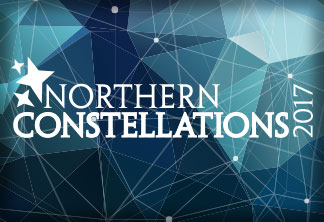Welcome to Northern Constellations 2017, NOSM’s annual faculty development conference!
Our diverse program is the result of the contributions from our many NOSM faculty and staff presenters, members of our planning committees, and our CEPD/FA administrative team. During plenary sessions, you will explore key concepts relevant to health professional education: Improving our clinical and educational activities through a culture of quality; Providing leadership as we move towards integrating health care with education, research, and scholarly pursuits; along with Professional development of the empathetic self within the context of medical education.
Each of you will have an opportunity to attend a unique set of sessions to meet your learning needs as you rotate through a series of four interactive workshops relevant to your roles and responsibilities in the areas of teaching and preceptoring; research; scholarly activities; leadership; and professional resiliency. Between sessions, you will have opportunities to network with colleagues, educational staff, and learners as well as continuing conversations with conference presenters.
As we strive to expand your educational experience, Northern Constellations 2017 will feature fire side chats providing an opportunity for you to converse informally with each of our plenary speakers. Educational Innovations will feature NOSM faculty, staff, and learners who will be allocated ten minutes to showcase their innovation along with four minutes for peer questions and discussion.
Consider scheduling an optional research or library consultation to support your scholarly interests and activities. Participate in one of our wellness activities and rejuvenate after an afternoon of cognitive work. Join us for the Northern Constellations Friday Dinner where we will recognize outstanding faculty achievements and promotions.
If you have a question or concern, please approach a member of our CEPD staff who will be happy to help out. Enjoy Northern Constellations 2017 and take home several pearls to apply within your clinical or educational setting!
James Goertzen MD, MCISc, CCFP
Assistant Dean, CEPD
FRIDAY, APRIL 21 – SATURDAY, APRIL 22, 2017
COURSE CODE: CFINC-01701-A
HOLIDAY INN
SUDBURY, ONTARIO



